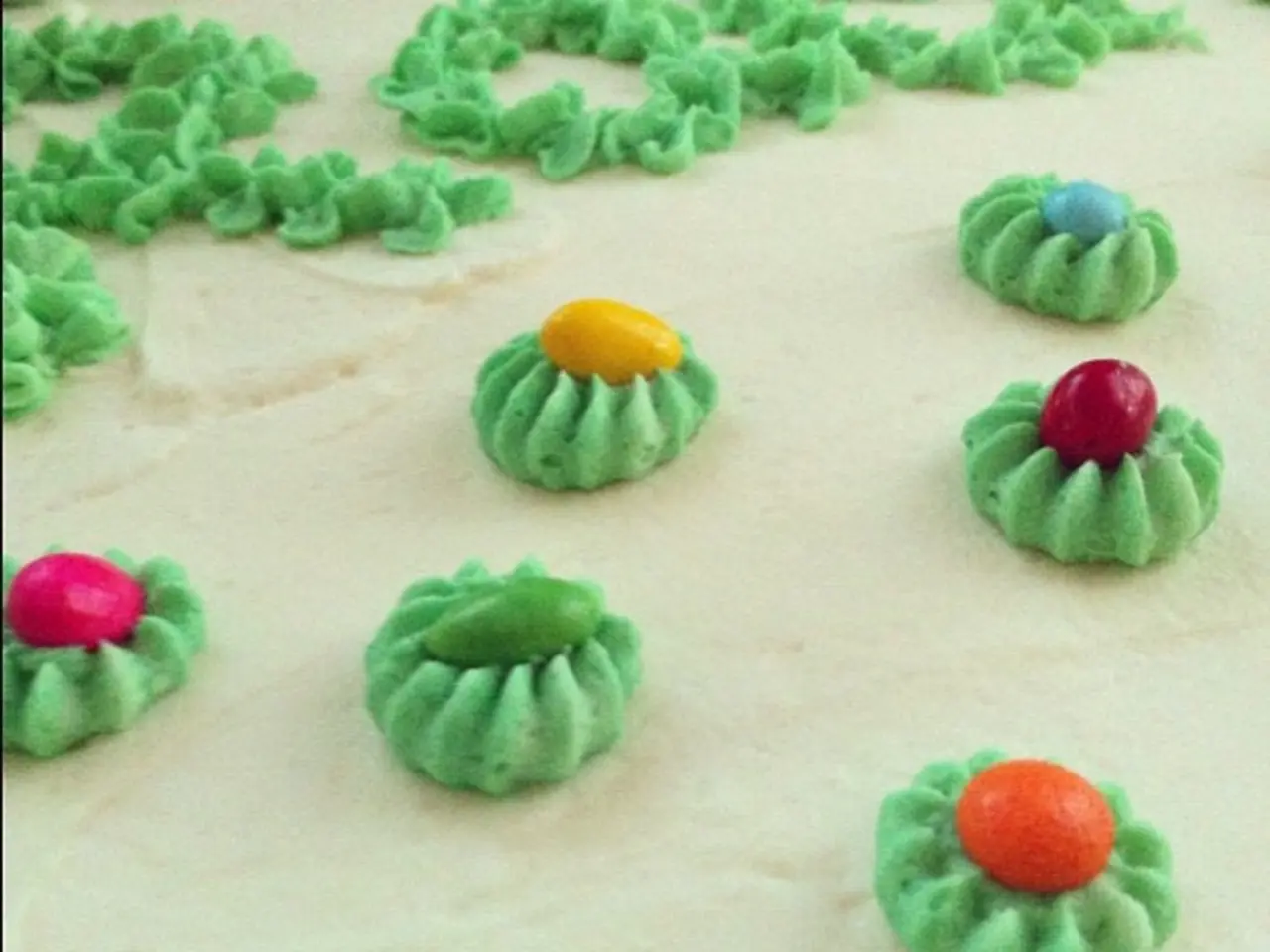Skin Irritations on the Head Scales
Scalp Sores: Understanding Causes and Treatments
Scalp sores can be a source of discomfort and concern for many individuals. These sores can be caused by a variety of factors, including contact dermatitis, dandruff, psoriasis, fungal infections like ringworm, and bacterial infections such as folliculitis or boils.
Contact Dermatitis
This irritation results from exposure to harmful substances on the scalp, causing dry, itchy scabs. To alleviate symptoms, it's essential to avoid offending products and switch to gentle or specialized shampoos.
Dandruff (Seborrheic Dermatitis)
This condition is caused by an inflammatory reaction partly linked to the overgrowth of Malassezia yeast on the scalp. It leads to red, greasy, flaky skin and sometimes yellowish or white scabs. Treatment typically involves medicated shampoos containing zinc pyrithione, selenium sulfide, or ketoconazole. In stubborn cases, prescription treatments or scalp exfoliation may be necessary.
Psoriasis
Psoriasis on the scalp causes persistent silver or gray scabs and plaques that can be resistant to healing. It often requires specialized treatments prescribed by a dermatologist, including topical steroids or other anti-inflammatory agents.
Fungal Infections (Tinea Capitis or Ringworm)
These infections cause redness, soreness, scaling, and sores on the scalp. They are treated with antifungal medications, sometimes requiring oral therapy.
Bacterial Infections (Folliculitis, Boils)
These infections cause painful, swollen sores due to bacterial infection of hair follicles and may need antibiotic treatment.
Preventive Measures
To prevent scalp sores, it's crucial to keep your scalp clean, shampoo immediately after exercising, clean any cuts on your scalp with an antimicrobial sanitizer, and not share items that touch your scalp.
Treatment Approaches
Treatment approaches vary depending on the cause but generally include avoiding irritants and allergens, using medicated shampoos with antifungal or anti-inflammatory ingredients, consulting a dermatologist for persistent or severe cases, and avoiding scratching to prevent further injury, infection, and potential hair loss.
Professional Advice
Prompt diagnosis by a healthcare professional is advised when scalp sores persist, worsen, or are accompanied by symptoms like pain, swelling, or hair loss to tailor treatment appropriately. If you think you've been exposed to ringworm, washing your hair with an antifungal shampoo every day for two weeks can prevent the fungus from settling in.
Treatment for Psoriasis
Treatment for psoriasis can take a long time, sometimes as long as several years. Usually, treatment starts with a topical treatment, and if that doesn't work, phototherapy or oral/injectable medication may be prescribed.
Phototherapy
Phototherapy involves exposing affected areas to certain kinds of light in order to slow cell turnover.
Pemphigus
Treatment for pemphigus can have serious side effects and needs to be monitored by a doctor. It requires medication either orally or via injection, and topical creams may also be used. Everyone responds to psoriasis treatments differently, so doctors may have to try several methods before finding the right one.
Home Remedies
While seeing a doctor is important for treating scalp sores, home remedies can help prevent and contain them. For instance, if you're using a topical cream on scalp sores, wash the area before applying and let it dry before washing again.
[1] Mayo Clinic. Scalp Infections. https://www.mayoclinic.org/diseases-conditions/scalp-infections/symptoms-causes/syc-20369996
[2] American Academy of Dermatology. Scalp Problems. https://www.aad.org/public/diseases/hair-scalp/scalp-problems
[3] Cleveland Clinic. Scalp Infections. https://my.clevelandclinic.org/health/diseases/17390-scalp-infections
[4] National Institute of Arthritis and Musculoskeletal and Skin Diseases. Scalp Problems. https://www.niams.nih.gov/health-topics/scalp-problems
[5] American Osteopathic College of Dermatology. Seborrheic Dermatitis. https://www.aocd.org/seborrheic-dermatitis/
Environment: Exposure to harmful substances on the scalp can lead to contact dermatitis, which is a common cause of scalp sores. To minimize such exposure, it's important to pay attention to one's lifestyle and the products used, choosing gentle or specialized shampoos.
Science: Understanding medical-conditions such as psoriasis, fungal infections, and bacterial infections is key in diagnosing and treating scalp sores. This knowledge can also help individuals maintain a health-and-wellness lifestyle by preventing infections through proper hygiene and the use of antimicrobial sanitizers.
Health: Scalp sores, caused by various conditions, can be uncomfortable and even lead to complications like hair loss. Regular check-ups with healthcare professionals help in early identification and appropriate treatment, ensuring skin-care and general health.
Lifestyle: A healthy scalp lifestyle includes regular shampooing, avoidance of irritants and allergens, and prompt treatment of cuts or sores on the scalp. Additionally, home remedies such as washing the area before applying topical creams can help prevent and contain scalp sores.




